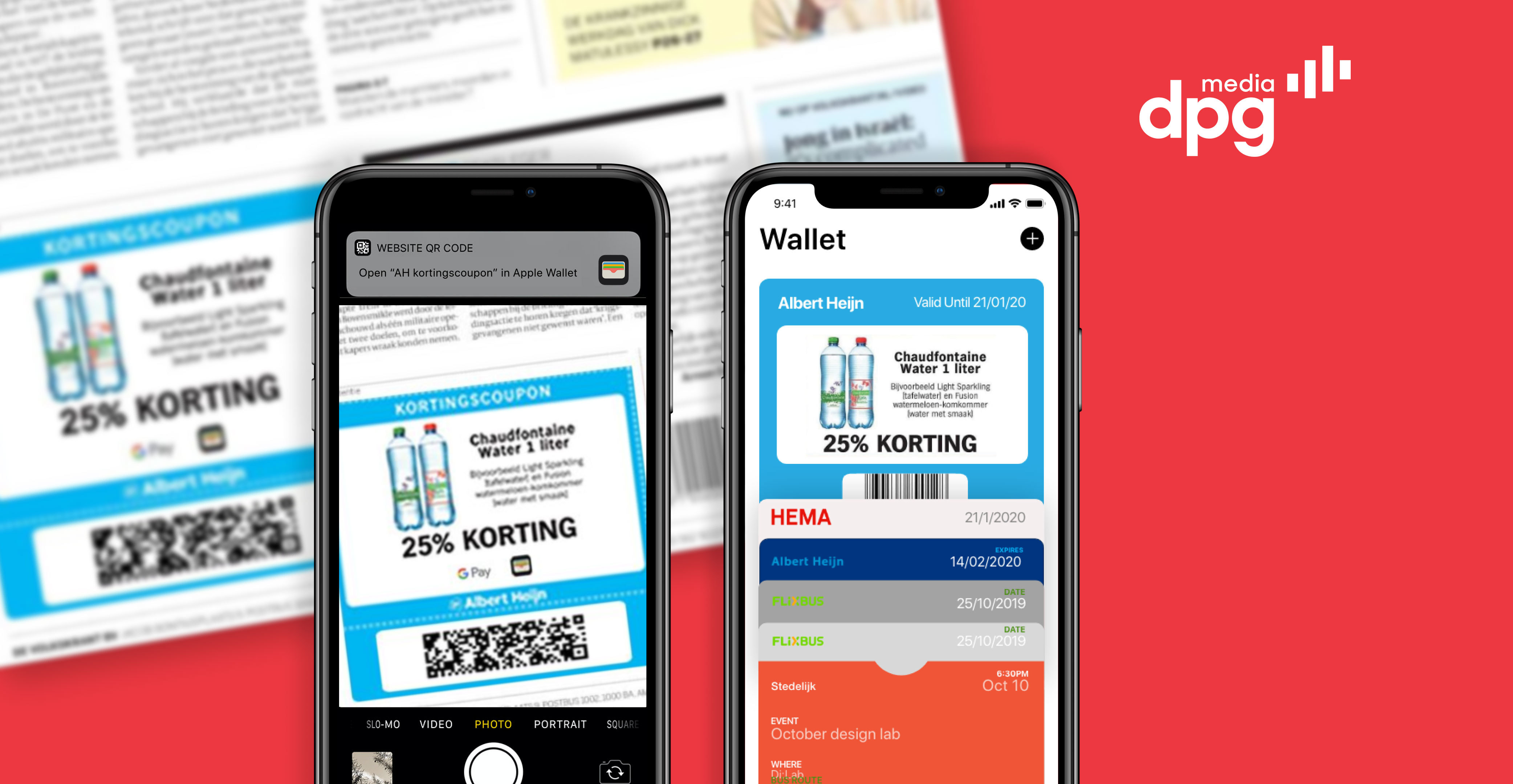
Sandcastle
Bringing locals and expats together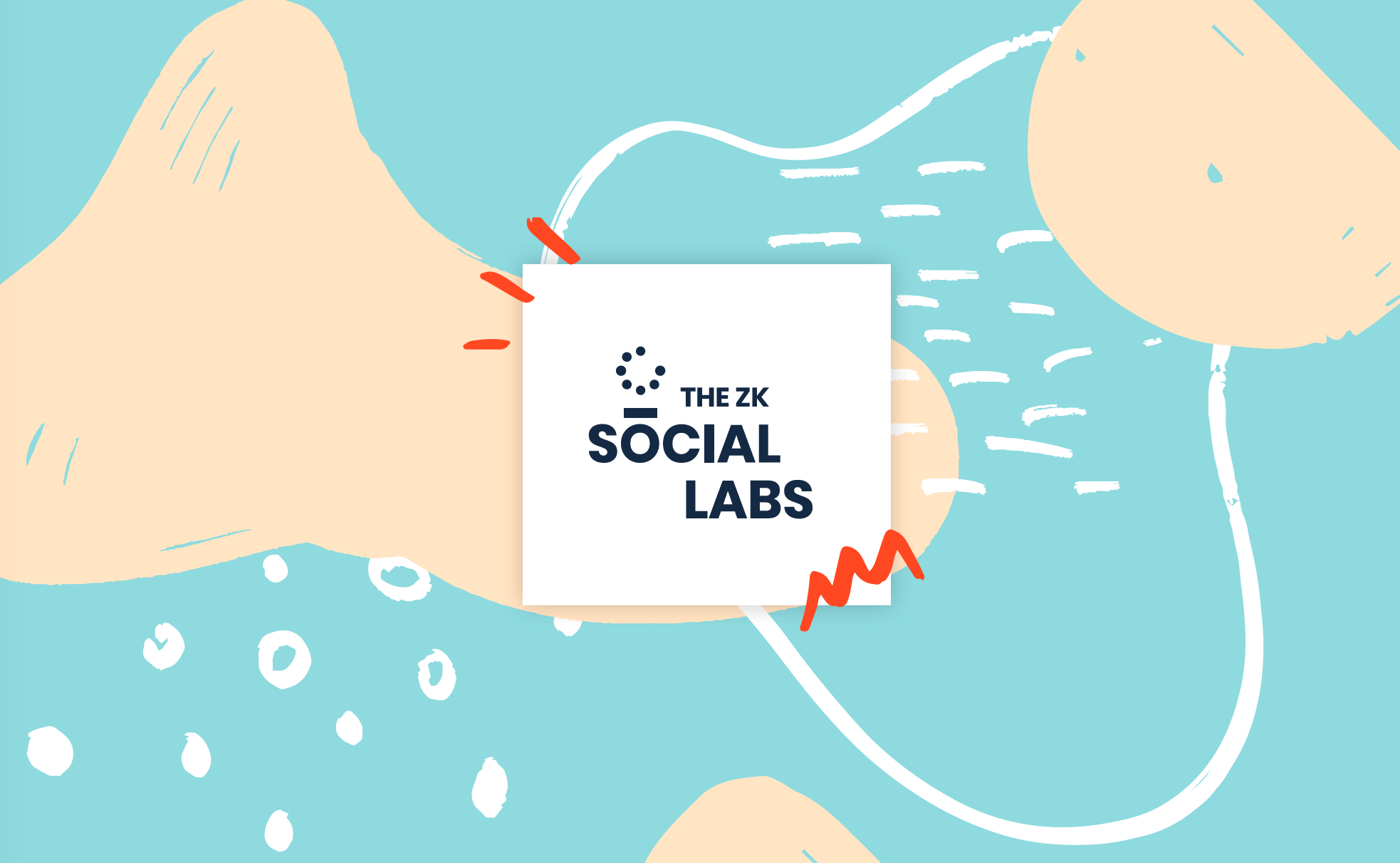
-
Client:
Wonam
- Team:
-
Disciplines:
Concept, UX/UI, Animation
-
Schoolyear:
2019-2020
In today's world, cities are growing at an unprecedented speed. The exponential growth of the human population, combined with the increased rate of urbanization is bringing up several challenges to governments and municipalities. Housing scarcity, air pollution, transportation, and governance are often mentioned in the headlines, but that’s not all. The influx of immigrants, tourists, and expats is causing segregation among citizens, increasing social tension within the community.
The Sandcastle, an architectural monument in the Amsterdam neighbourhood of Bijlmermeer, is now being renovated by housing developer Wonam into free-market housing aimed at the expat market. The Bijlmermeer is a multicultural, diverse community with a high amount of social housing. A large influx of expats moving into the area could potentially disrupt the social cohesion of the neighbourhood.
Our team was tasked with investigating how we could create acceptance of the “new” building within the existing community, as well as what tools designers and housing developers have available to improve social cohesion within a neighbourhood.
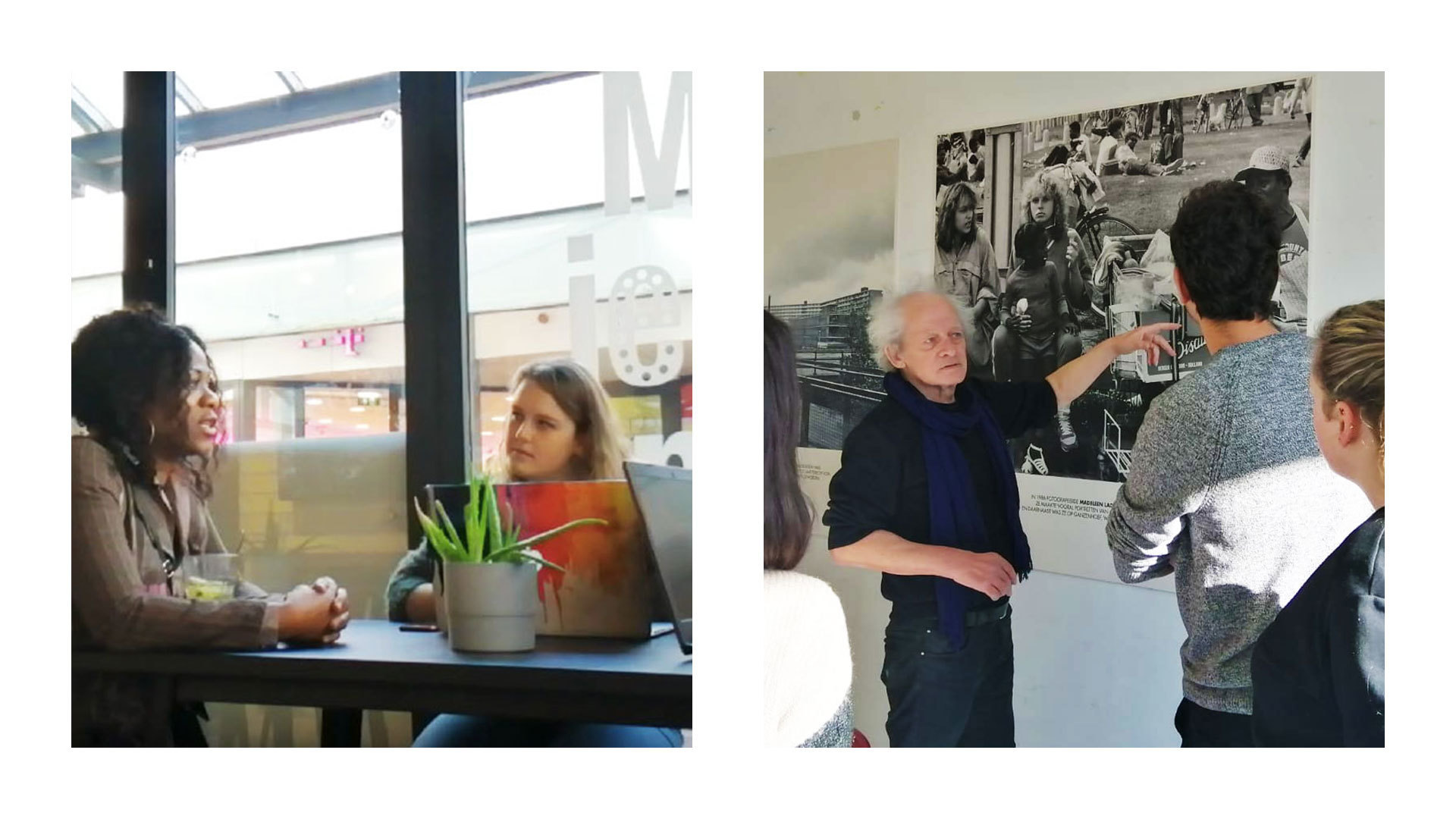
The Foundations
We began our project by getting ourselves familiar with the problem space: the neighbourhood of Bijlmermeer. Therefore, we visited the area and conducted interviews with community members, placed a comment box in a local community centre to gather anonymous opinion and feedback, and gave out disposable cameras to local residents to get more open-ended data on the feelings and values of the local residents. We also conducted desk research on civic games, public participation, and the history and culture of the Bijlmermeer area.
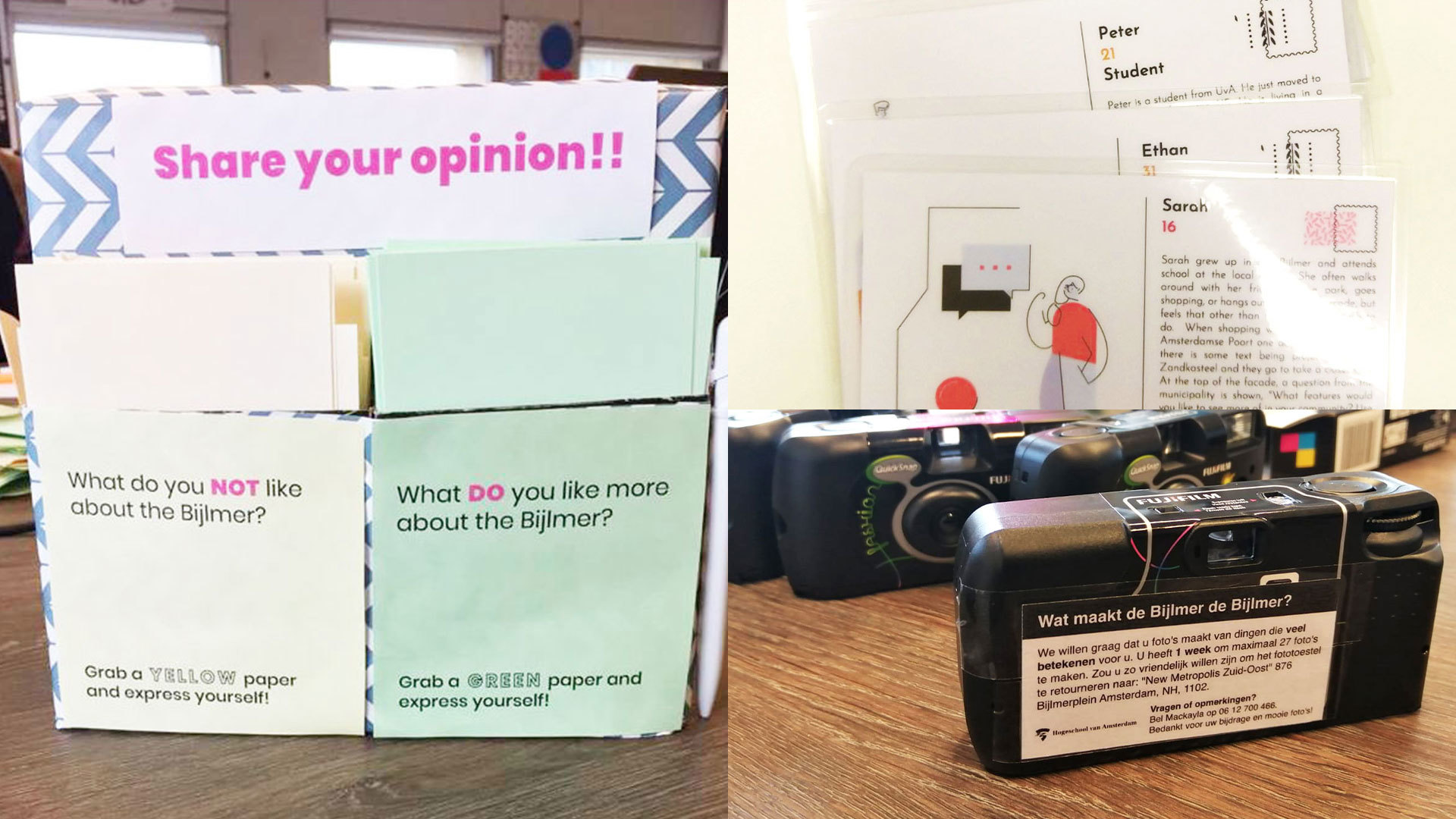
We found out that the locals highly value diversity and multiculturalism. But while newcomers are welcomed, we learnt that there are fears of the repercussions of gentrification that a large influx of expats could bring to the area.
The main insights from our field research are:
- Very open community
- Strong sense of community
- High demand for affordable social housing
- Fear of gentrification
- Lack of activities and facilities in general
- Lack of facilities for youth and elders
- Distrust of government and big companies
- Diversity of demand
- Willingness to participate
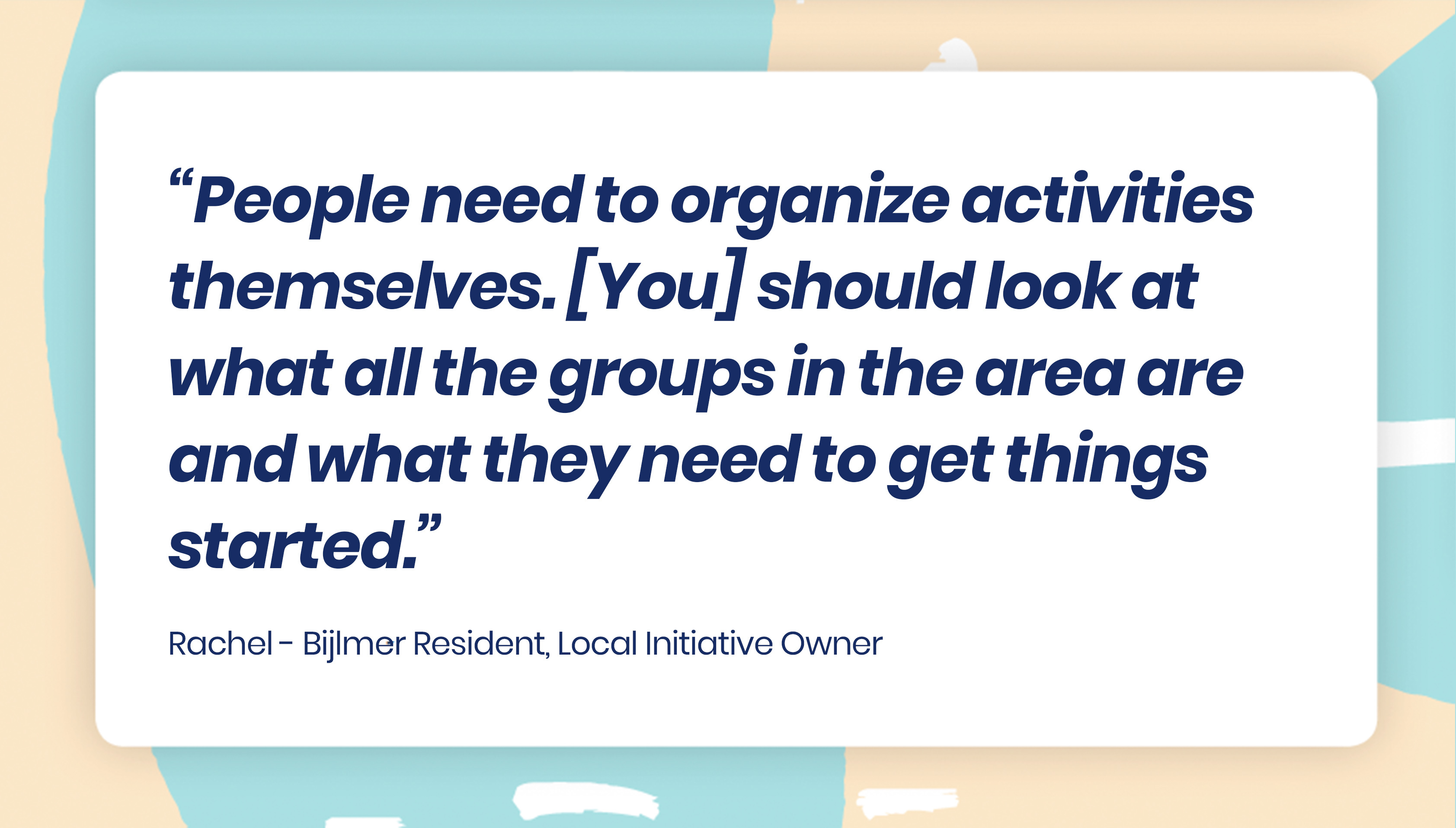
Given that “creating acceptance” is quite a broad topic, we used the ‘How Might We’- method to narrow down our problem space. We defined the following three possible directions for our project:
- Create opportunities and benefits for the local community
- Strengthen the multiculturalism
- Let the people’s voices be heard
After some discussion with our client, we made a decision to choose and ideate on the first direction because it would be the most impactful and suitable for the current needs of the local community.
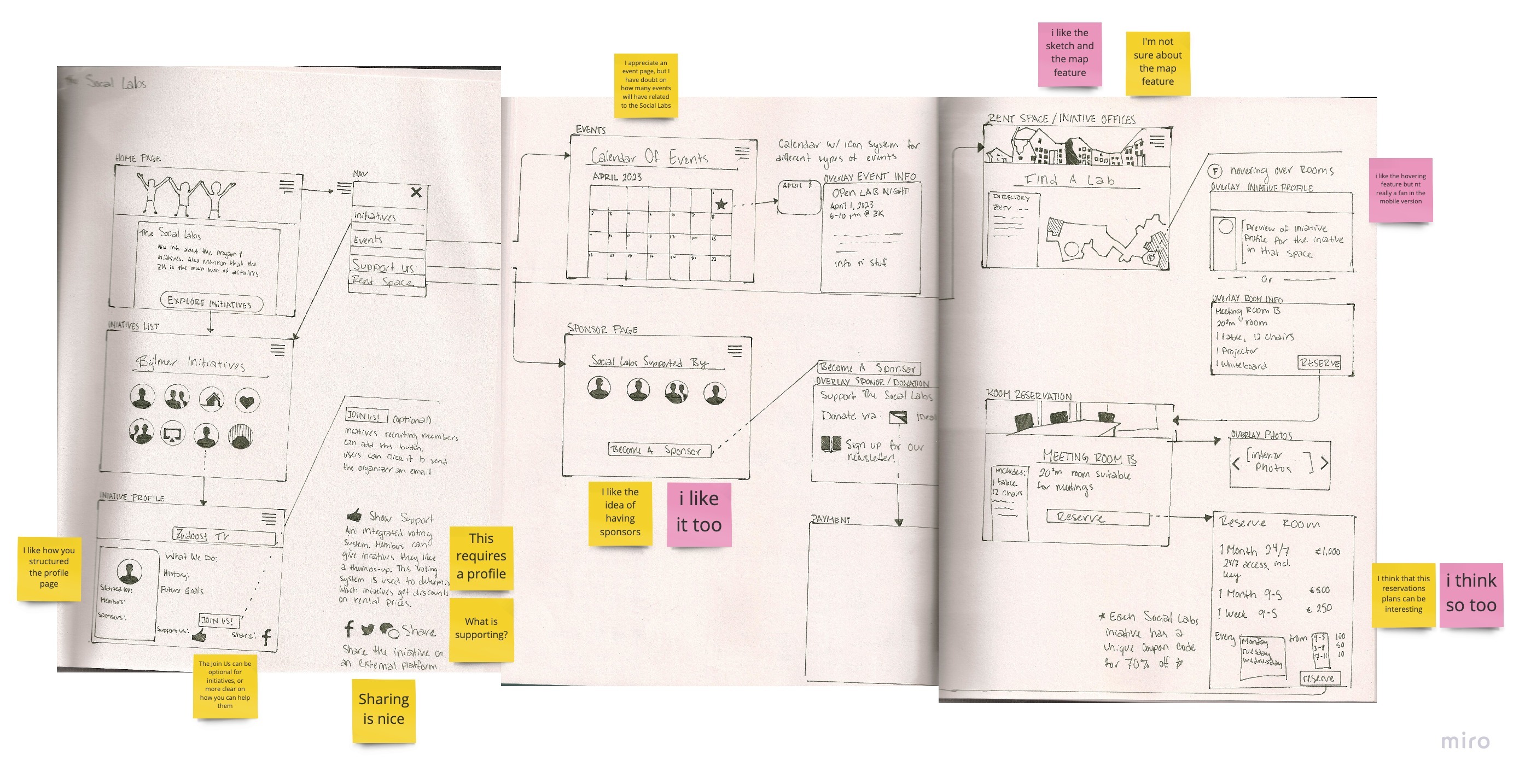
Welcome to the Neighbourhood
We came up with the idea of the ZK Social Labs service, in which social initiatives can apply for free space and funding to set up projects that positively impact the local community. Wonam, in partnership with a commission of local residents, assesses the eligibility of the applicants, and all of the eligible applicants are showcased on the ZK Social Labs website where the rest of the community can vote for the projects they find most appealing.
The financial model of this program is based on the creation of a Social Capital Fund, composed of 1% of the collected rent paid by the inhabitants of the ZK. The program is cyclical to ensure higher impact and engagement with the local community, as one project finishes, another begins.
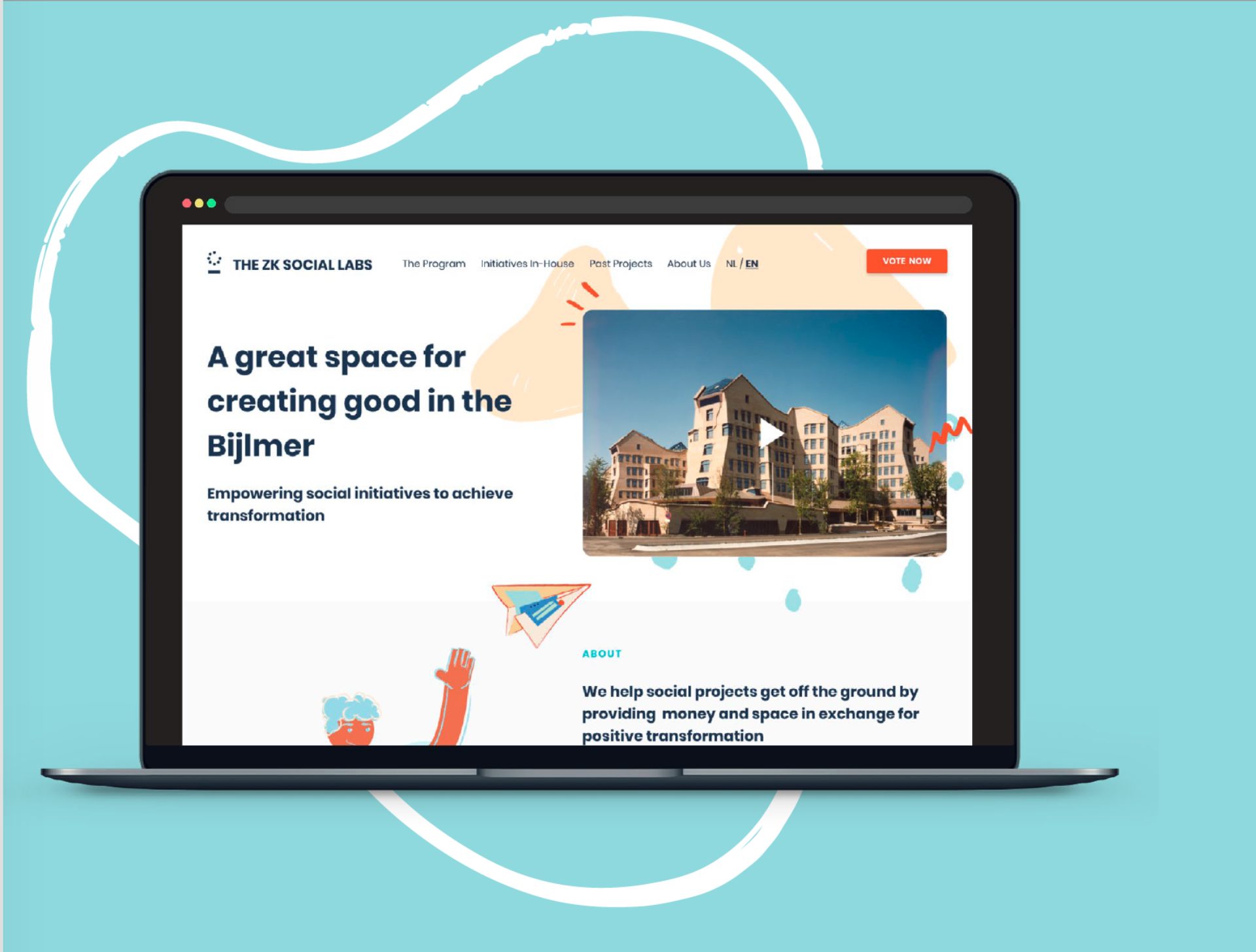
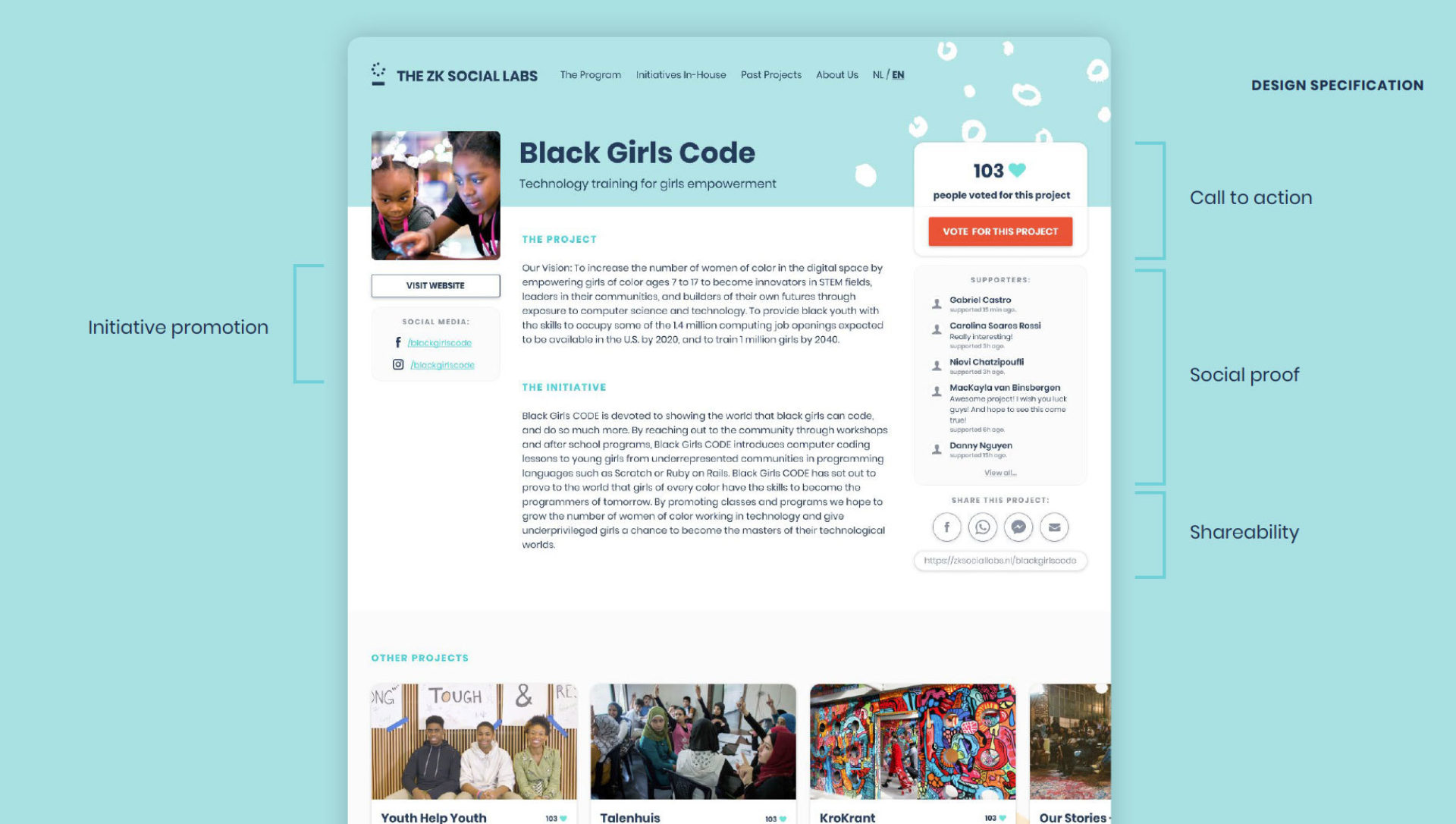
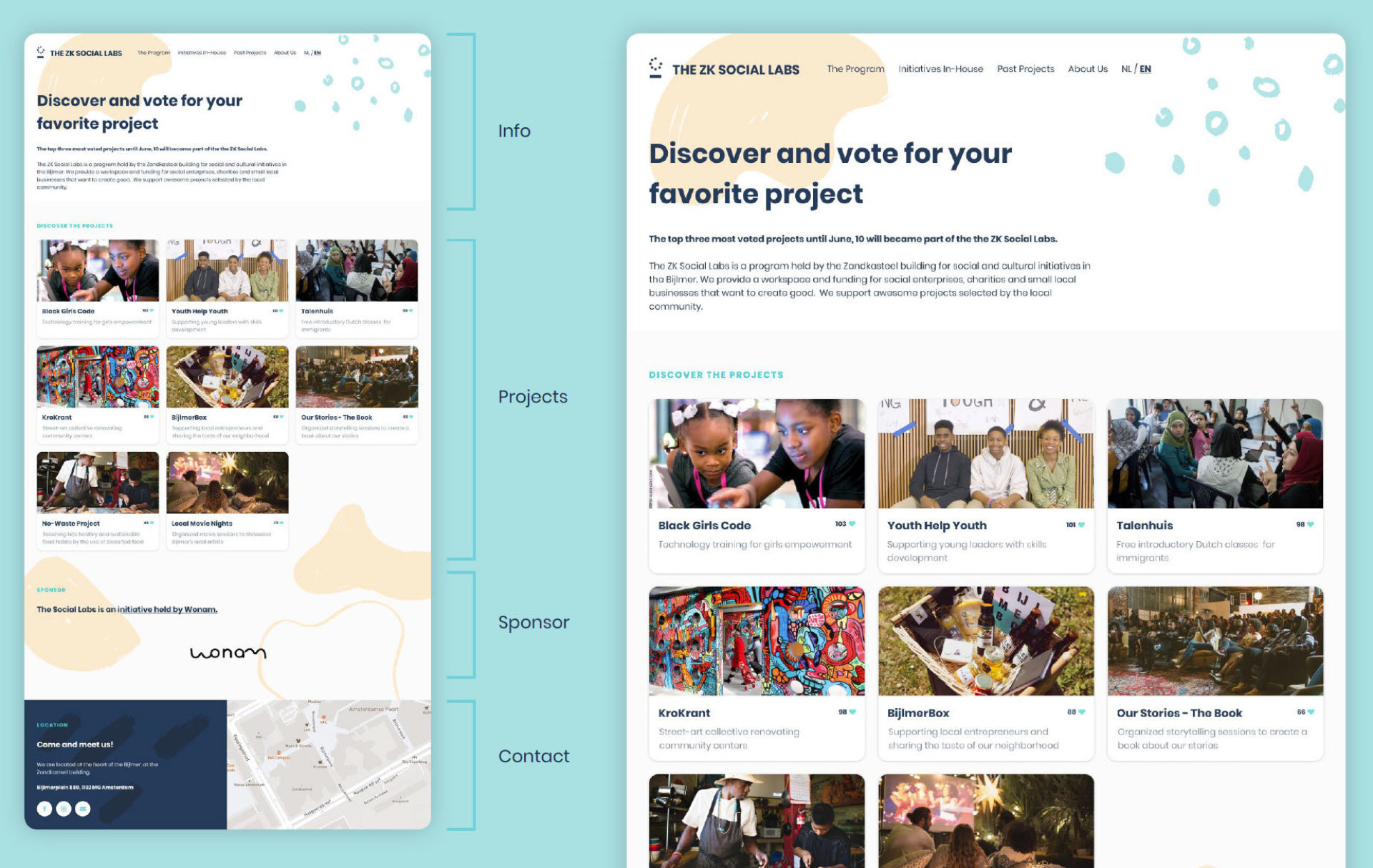
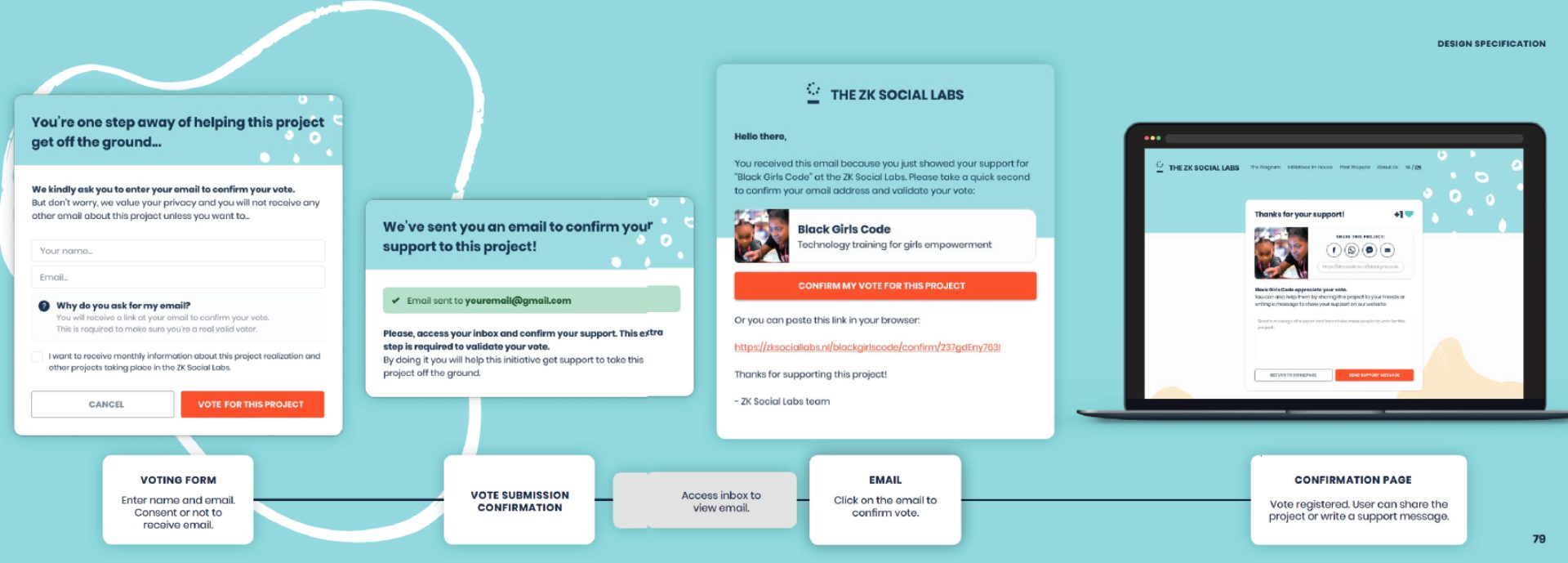
To develop our concept in full detail, we did market research about similar projects in the area and sent surveys to the local initiatives to identify their current pain points and needs while setting up a project. Additionally, we deployed several service design tools to flesh out all the stages of the service such as Business Model Canvas, Ecosystem Map, and Value Proposition Canvas, and Service Design Blueprints.
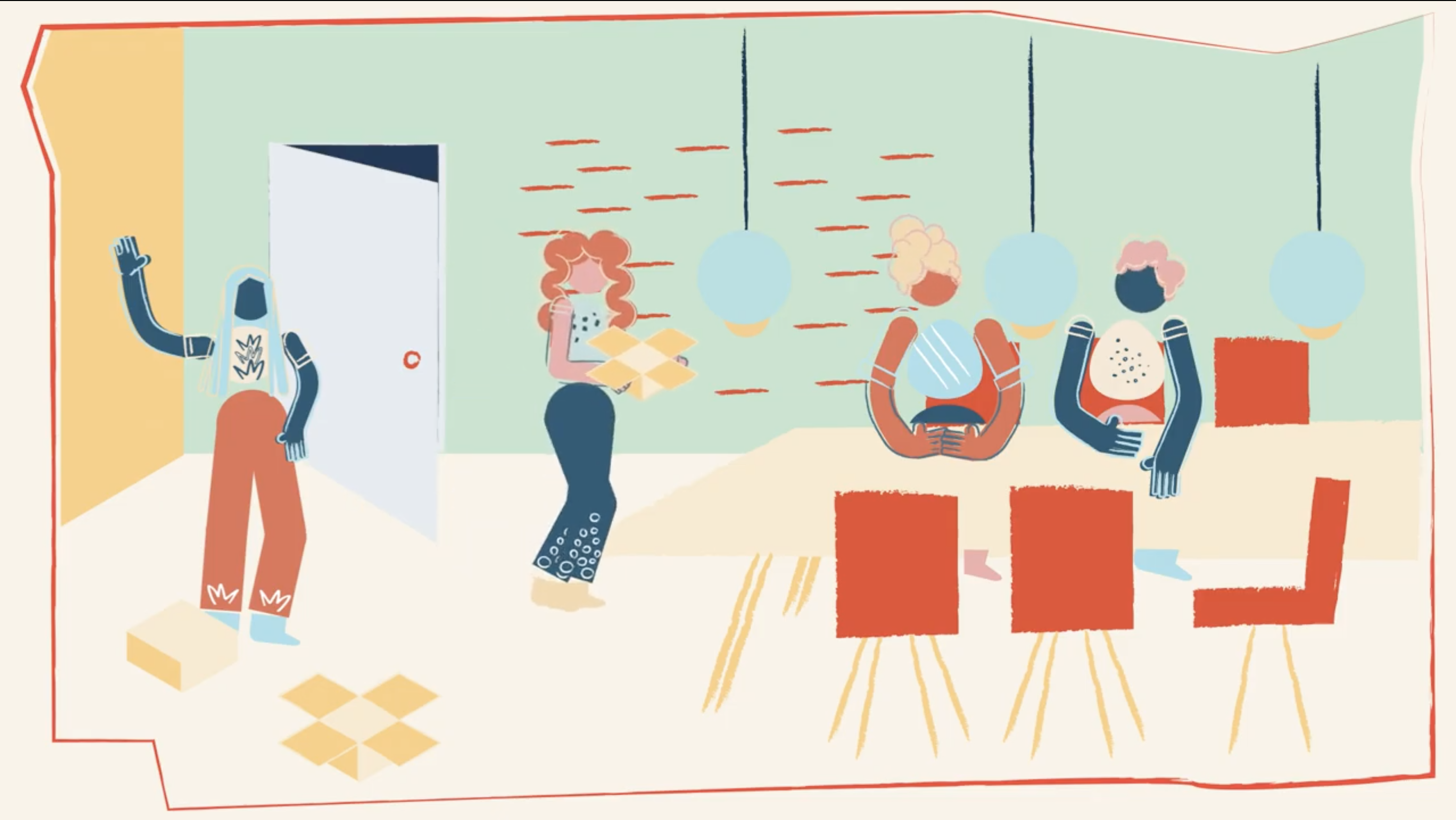
Watch it how it all works
Developing Further
We presented our final concept to local social initiative owners in the Bijlmermeer to get their feedback on our idea. Through these discussions, we put together a list of future recommendations for our client and collected the contact information of some individuals that were interested in becoming a part of the commission working on the ZK Social Labs. Our final deliverables were the documentation of the service design tools and design specifications for the ZK Social Labs website, an animated video explaining the concept, and the list of recommendations from the locals interested in helping Wonam make the ZK Social Labs a reality.
